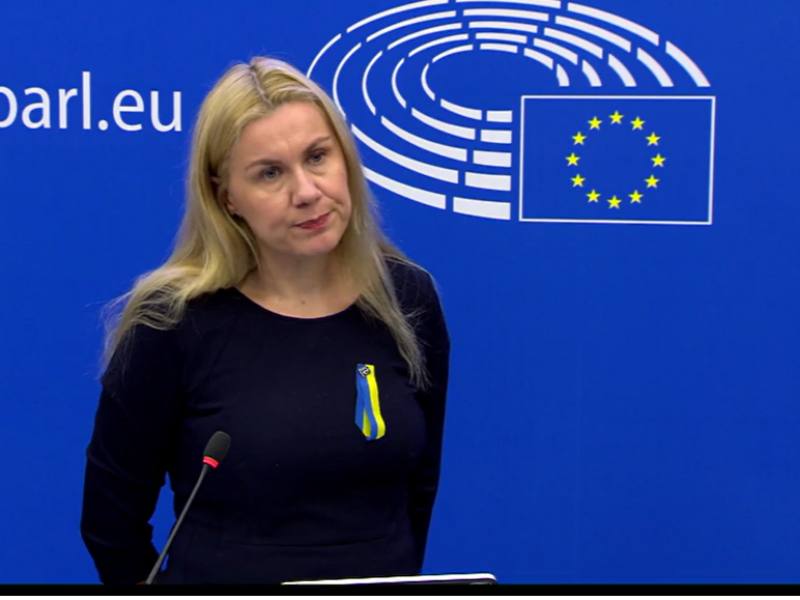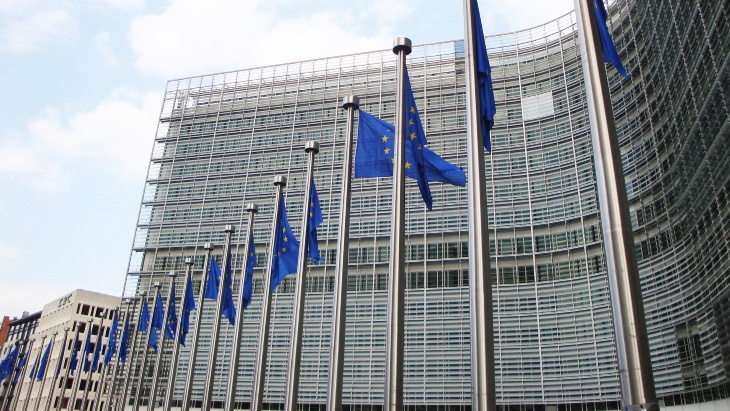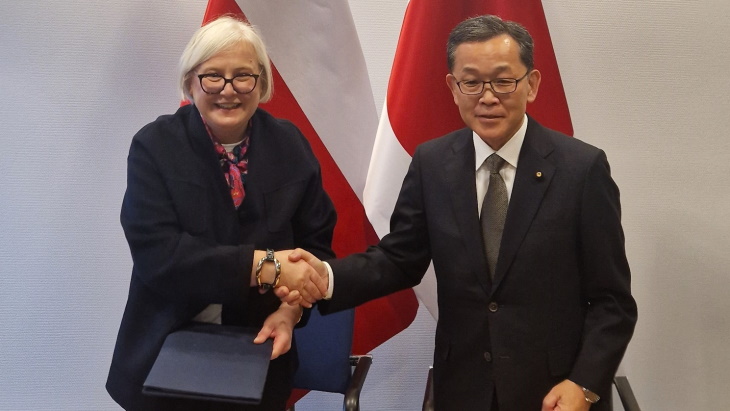
Kadri Simson, EU commissioner for energy, presents the proposed market reforms. Courtesy European Commission
The European Commission has proposed to reform the EU electricity market design to accelerate a surge in renewables, incentivise flexibility and make the continent’s energy industry clean, more competitive and affordable for consumers.
The proposed reform foresees revisions to several pieces of EU legislation – notably the Electricity Regulation, the Electricity Directive, and the REMIT Regulation.
It introduces measures that incentivise longer-term contracts with non-fossil power production and bring more clean flexible solutions into the system to compete with gas, such as demand response and storage.
This is hoped to decrease the impact of fossil fuels on consumer electricity bills and ensure that the lower cost of renewables gets reflected.
The proposed market reform will aim to boost open and fair competition in the European wholesale energy markets by enhancing market transparency and integrity.
This reform, which is part of the Green Deal Industrial Plan, will also allow the European industry to have access to a renewable, non-fossil and affordable power supply – a key enabler of decarbonisation and the green transition.
On the proposal, Kadri Simson, commissioner for energy, commented: “The current electricity market design has delivered an efficient, well integrated market over many decades, but tight global supply and Russia’s manipulation of our energy markets has left many consumers facing massive increases in their energy bills.
“We are proposing measures that will enhance the stability and predictability of energy costs across the EU. Driving investment in renewables will help us reach our Green Deal goals and make the EU the powerhouse of clean energy for the coming decades.”
EU electricity market reform: price stability and flexibility
The reform aims to foster price stability by reducing the risk of supplier failure.
The proposal requires suppliers to manage their price risks at least to the extent of the volumes under fixed contracts, to be less exposed to price spikes and market volatility. It also obliges Member States to establish suppliers of last resort so that no consumer ends up without electricity.
High and volatile prices, such as those seen in 2022 provoked by Russia’s energy war against the EU, have put an excessive burden on consumers.
This proposal will further aim to allow consumers and suppliers to benefit from more price stability based on renewable and non-fossil energy technologies.
Consumers will be given a wide choice of contracts and clearer information before signing to have the option to lock in secure, long-term prices and avoid excessive risks and volatility.
At the same time, they will still be able to choose to have dynamic pricing contracts to take advantage of price variability to use electricity when it is cheaper (e.g. to charge electric cars, or use heat pumps).
Under the proposal, rules on sharing renewable energy are also being revamped. Consumers will be able to invest in wind or solar parks and sell excess rooftop solar electricity to neighbours, not just to their suppliers.
To improve the flexibility of the power system, Member States will now be required to assess their needs, establish objectives to increase non-fossil flexibility and will have the possibility to introduce new support schemes, especially for demand side response and storage.
The reform also enables system operators to procure demand reduction at peak hours. Alongside this proposal, the Commission has also issued recommendations today to the Member States on the advancement of storage innovation, technologies and capacities.
ESMIG lauds demand side flexibility recognition
In response to the draft regulation, ESMIG – the European association of smart energy solution providers – welcomed the proposal, stating its necessity to “lead to a more resilient market, contain excessive price volatility and ensure secure energy supplies, especially from clean sources.
In particular, the association welcomed the new proposals on demand side flexibility, “notably the introduction of peak shaving products to enable demand response and decrease electricity consumption at peak times.”
In enabling such flexibility, ESMIG references the much-needed deployment of smart meters across smart electricity grids:
“Smart metering brings tangible energy savings, empowers consumers to better manage their energy and enables the integration of a growing share of renewables, supporting the green energy transition and reducing the reliance on fossil fuels and energy imports.
“Accelerating and completing the roll-out of smart meters across Europe is therefore essential to enable demand side flexibility: The lack of smart meters, and consequently lack of consumer visibility on their consumption (currently only an average of 54% of household consumers are equipped with intelligent/smart meters) has been recognised by the Commission as the first barrier in delivering flexibility.”







